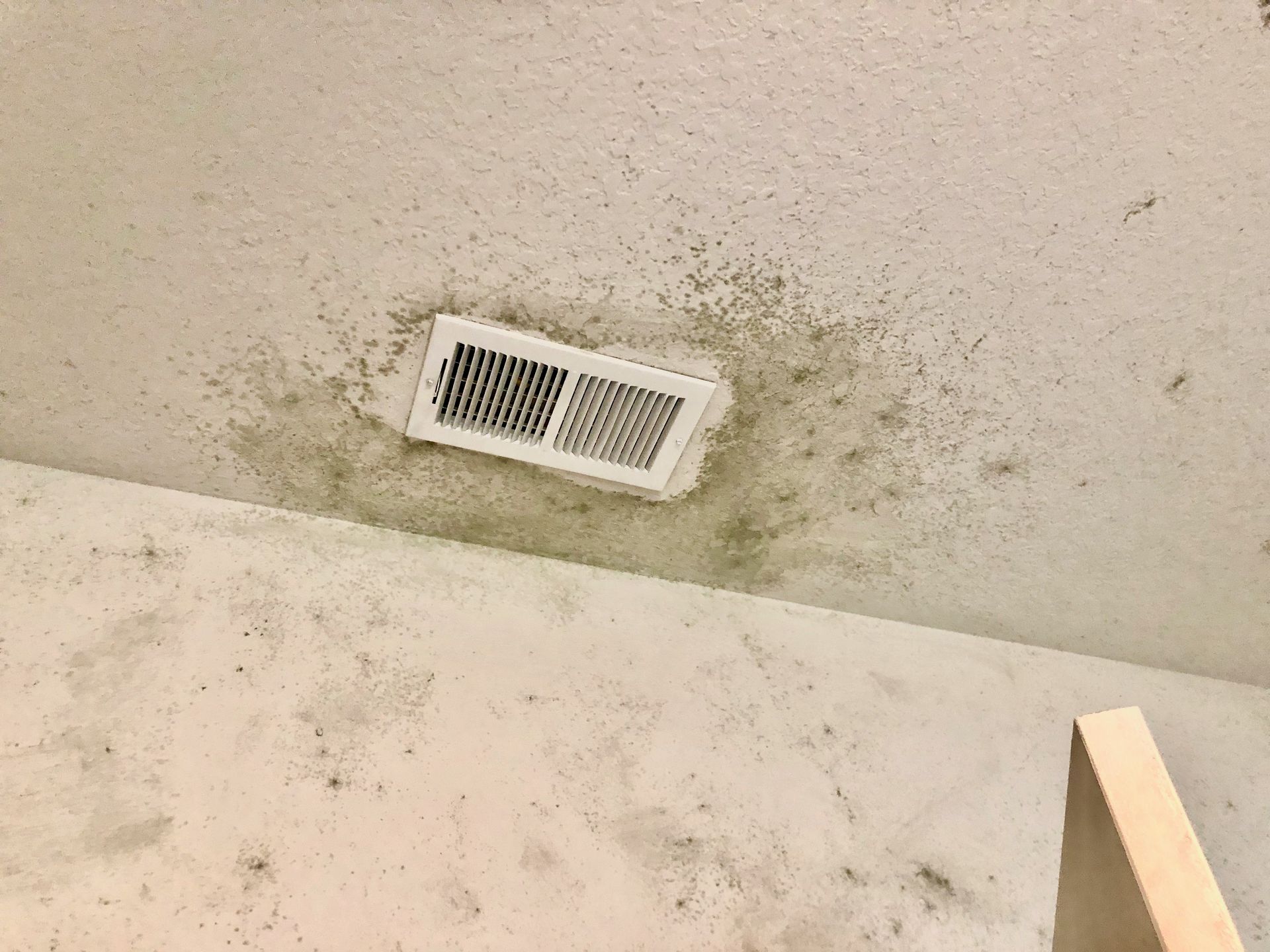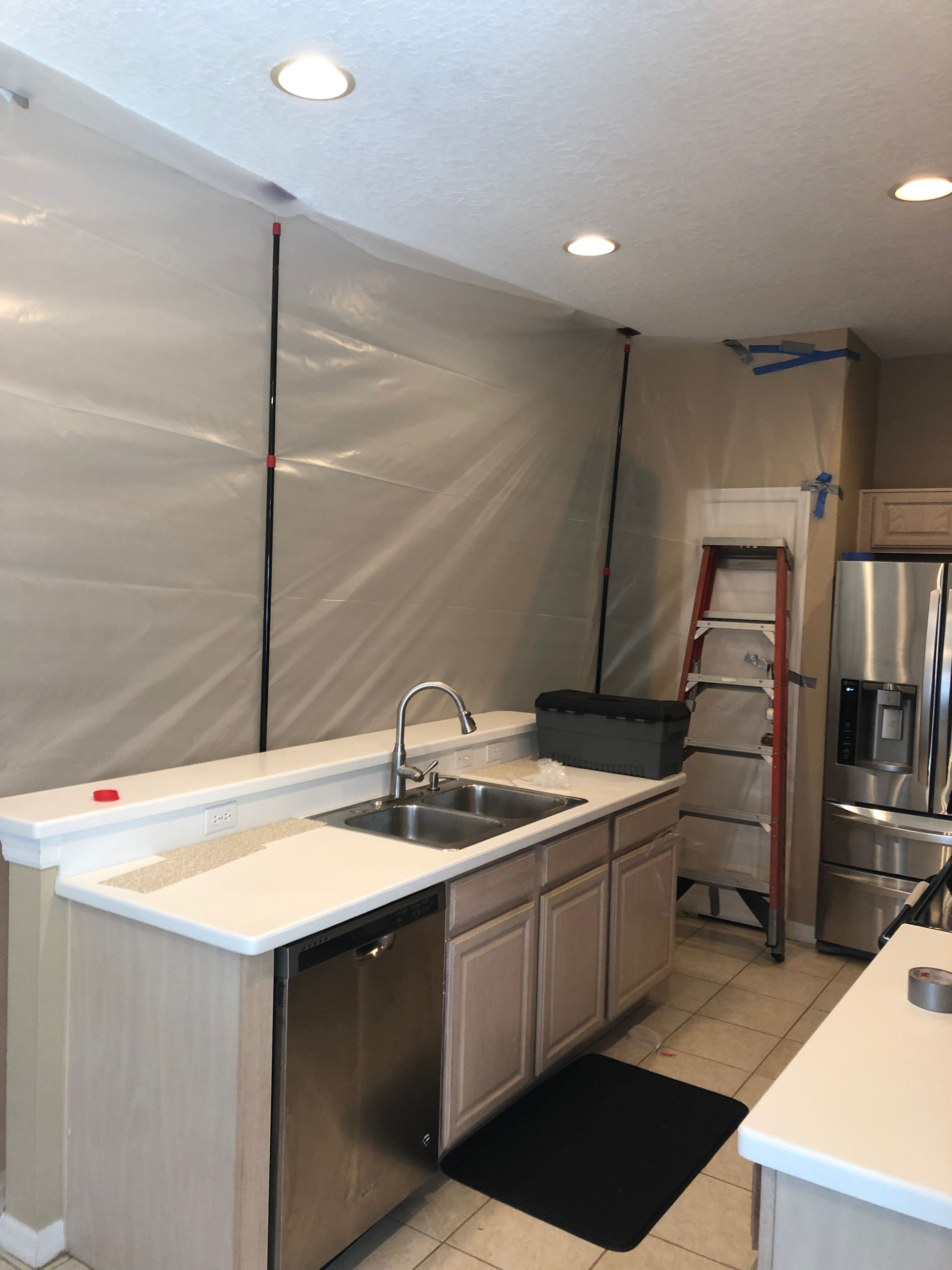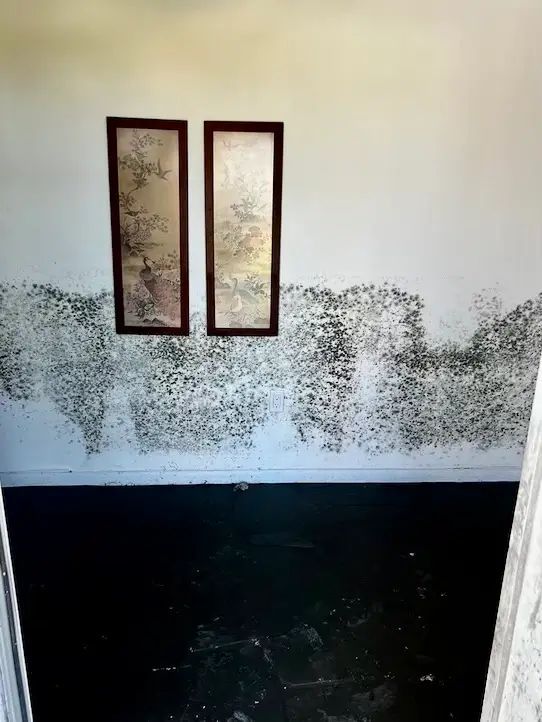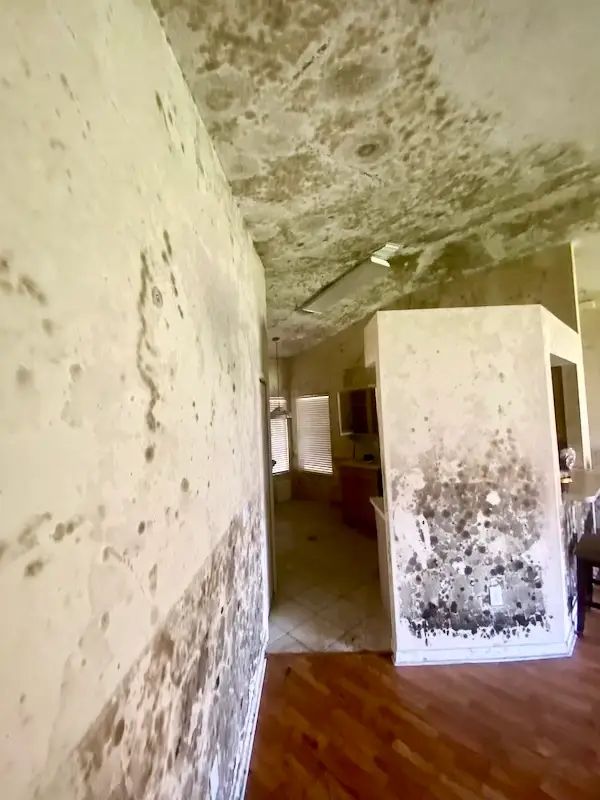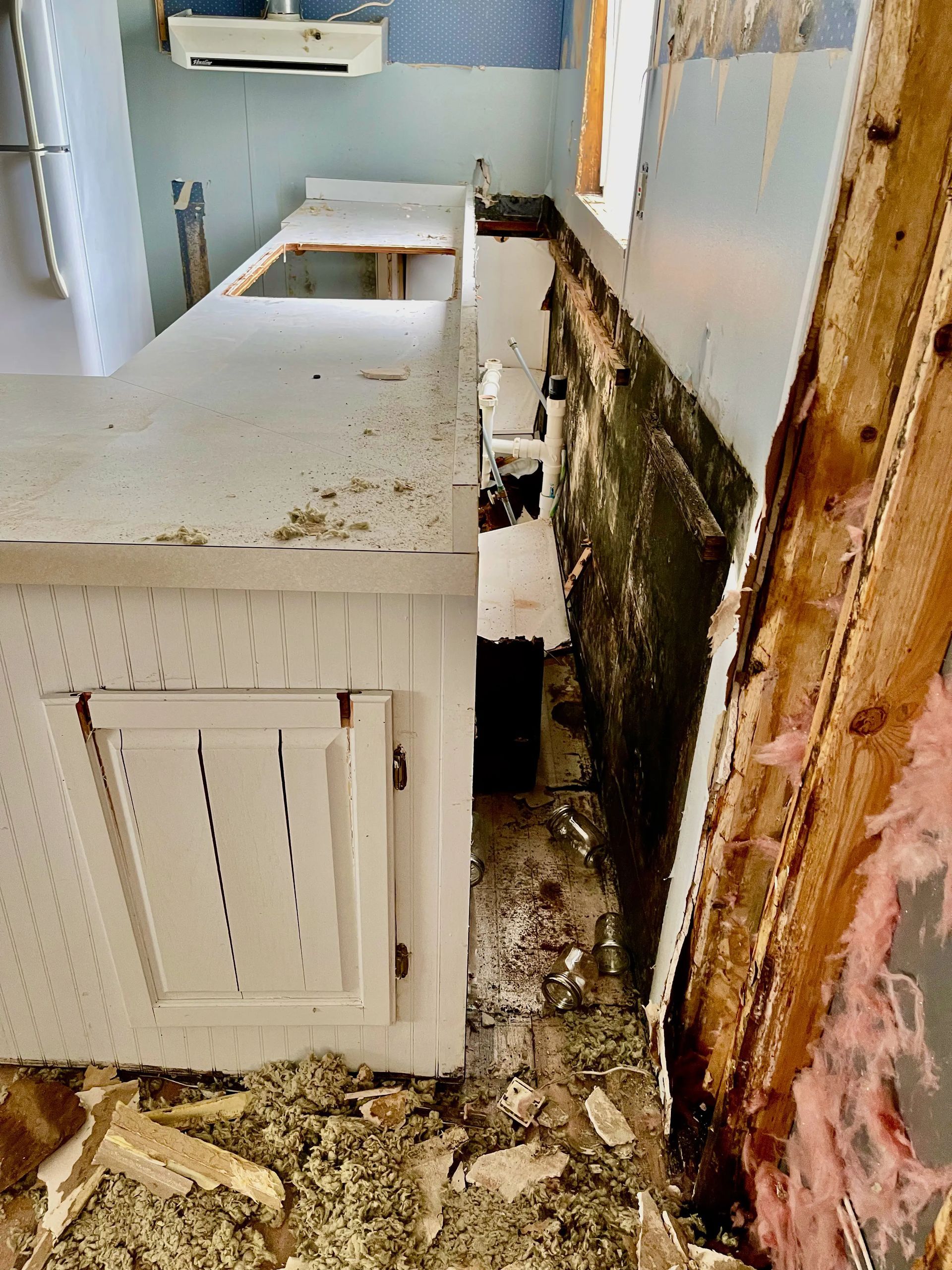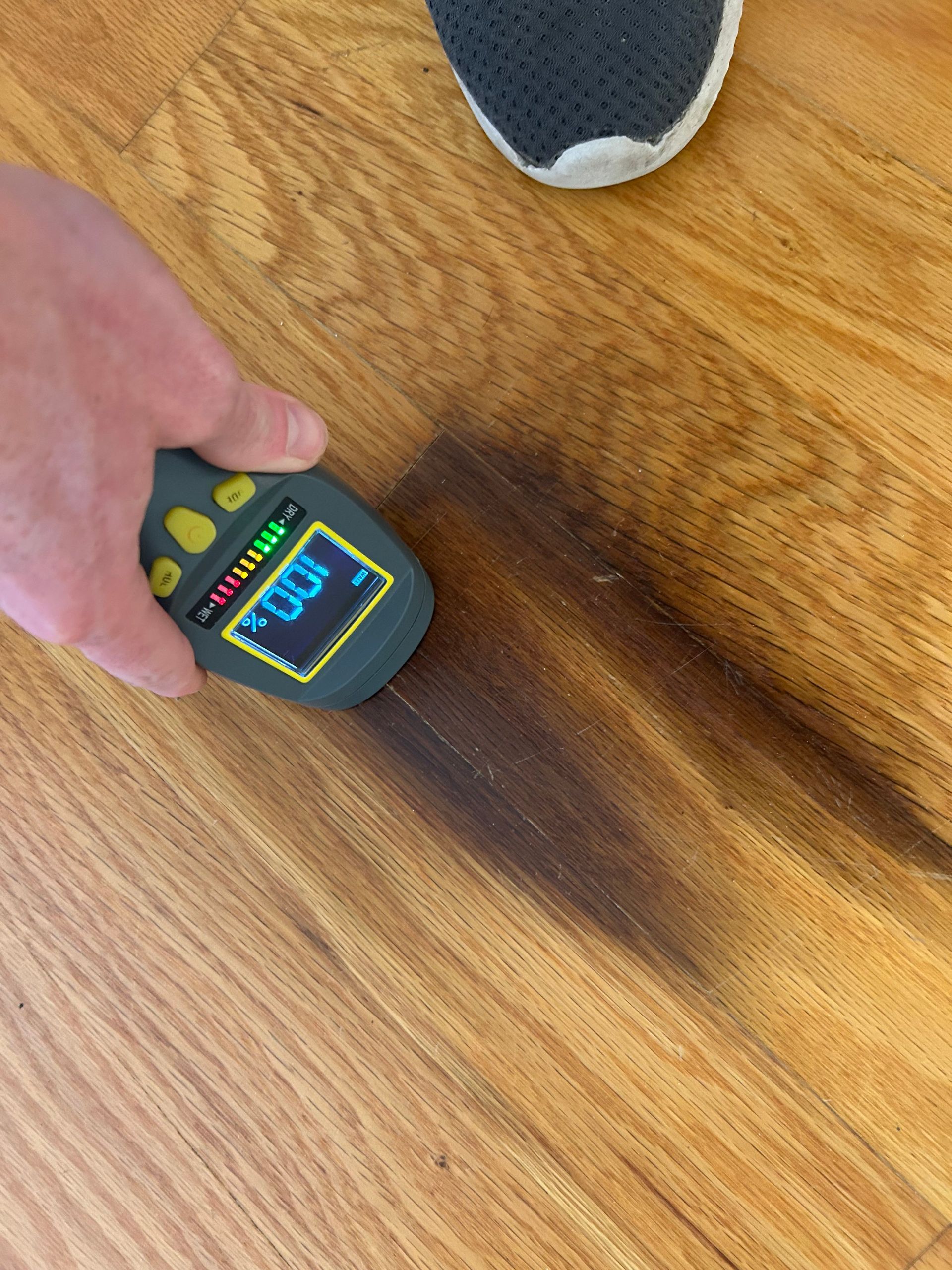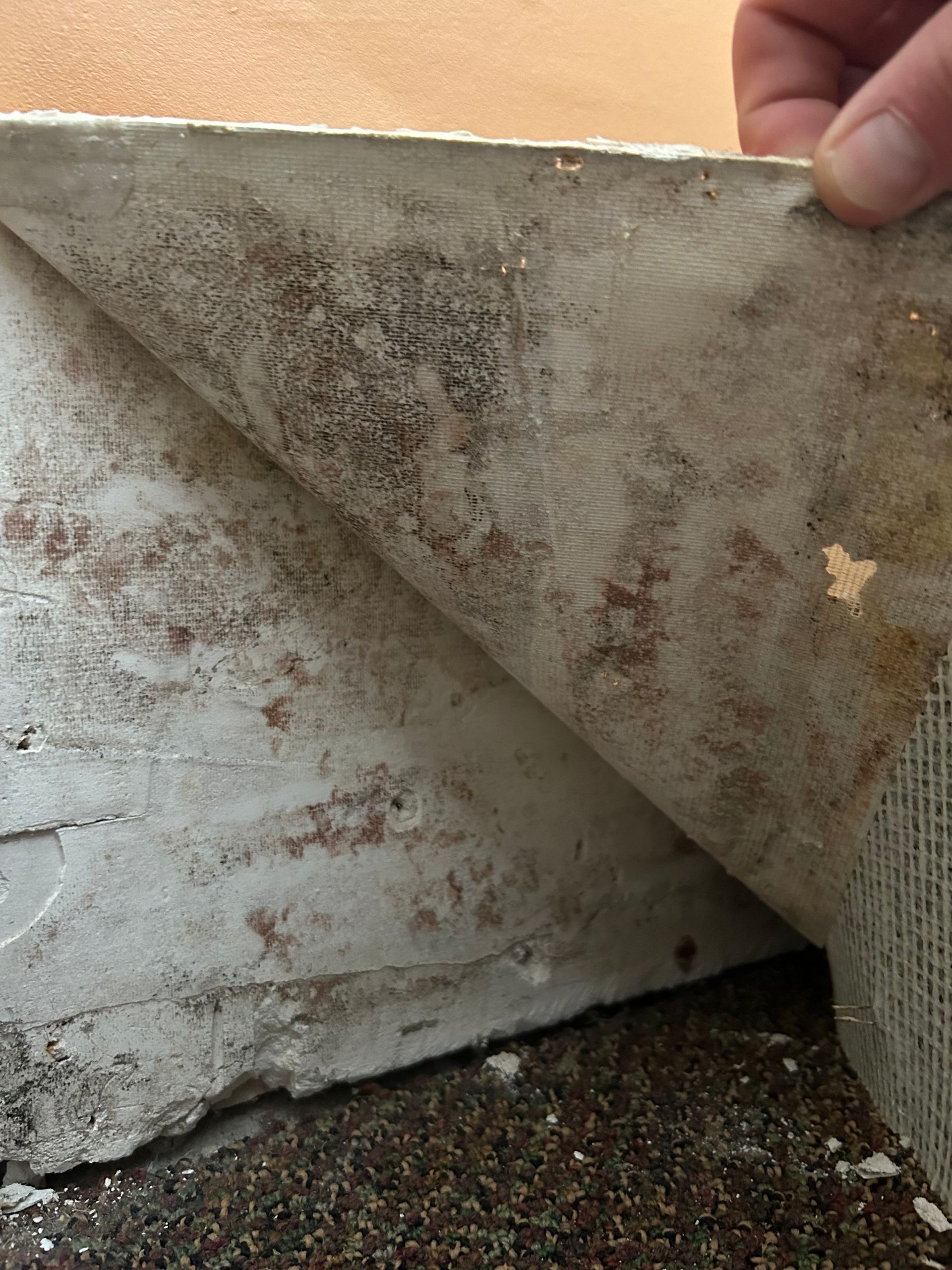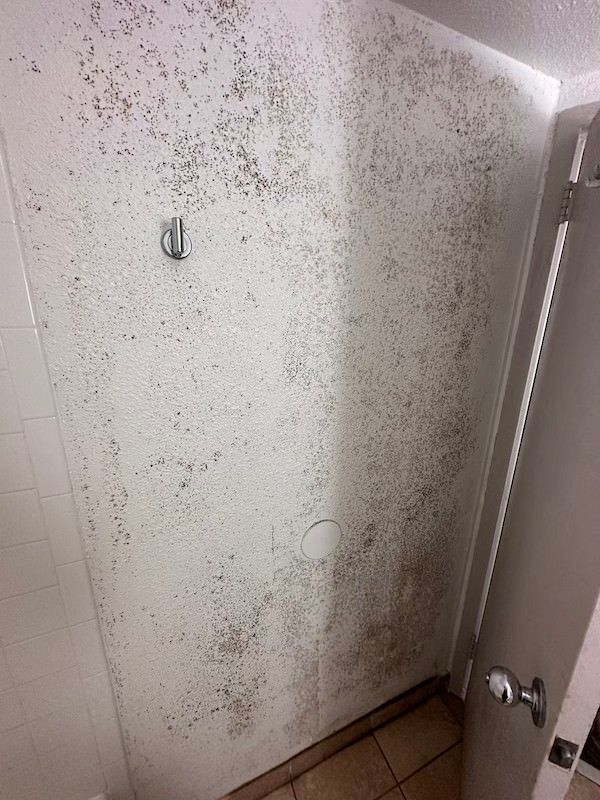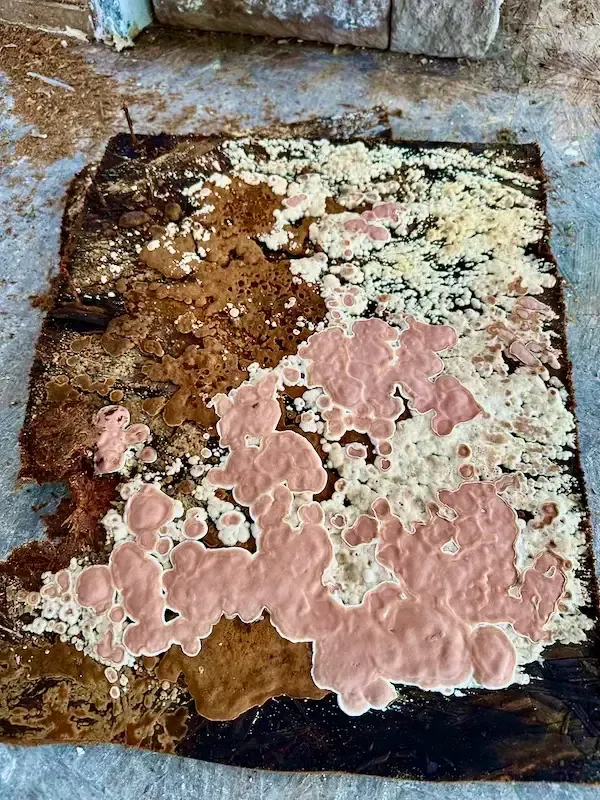Mold in Your Home or Vacation Rental? Here’s What to Do
Mold is always around you. There are probably spores in the air you’re breathing right now. For most people, a few mold spores won’t pose a health risk. But, given a chance to grow, mold can quickly threaten the health of a home and the people living there.
Studies have linked mold exposure to various health issues, which often involve respiratory symptoms like coughing, wheezing, and trouble breathing. According to the CDC, mold can aggravate asthma, trigger allergies, and cause hypersensitivity pneumonitis, a type of lung inflammation.
Human health aside, mold can also affect the well-being of pets and the home itself. Mold can grow on ceiling tiles, drywall, wood, and other materials, causing extensive damage over time.
It’s always best to address mold as soon as it’s discovered, no matter the type of mold or size of the problem. This is what you need to know about addressing mold issues in your apartment or rental home according to Redfin writer Adam Debrowski.
What should you do if you think there’s mold?
Mold growth is usually easy to recognize, when you can see it. It can be white, black, green, gray, or yellow in appearance and give off a musty odor. It will form near water damage or places where moisture collects.
You can’t always see mold growing. Sometimes, the smell is the only sign.
A mold infestation will spread as far as conditions allow, so it’s best to tell your property manager as soon as you are alerted of a problem.
Take note of a few things:
- The surface the suspected mold is growing on. Note whether it’s a hard surface (tile or glass) or a soft surface (drywall, carpet or upholstery).
- The spread of the suspected mold. How much space is it affecting?
- The color and odor of the suspected mold. Mold comes in lots of shapes and sizes. Is it green mold, black mold, white mold, etc.
Take photos of the suspected mold for your records. If you can, try to determine the cause of the mold growth, such as a leaky pipe or lack of ventilation, but only if it’s easy to see. Don’t do anything that risks your health or damages the property.
Once you’ve gathered your findings, report them to your property manager.
Don’t wait to address a possible mold problem. If mold is present, it’s best to treat it quickly. Mold on hard surfaces can usually be cleaned, but soft surfaces usually need to be removed and disposed of. More on that later.
What causes mold to grow indoors?
Microscopic mold spores are present in the air and aren’t visible to the naked eye. They can start growing within 12 to 48 hours after drifting onto a wet surface. This is why mold is most common in high-moisture areas like bathrooms and kitchens. It can also appear in places that always have a high humidity level.
“Porous materials with organic nutrients absorb the excess moisture, allowing the penicillium aspergillus that’s naturally in the air to colonize.” says Eric Rajchel, CEO of Water Mold Fire Restoration.
Mildew, contrary to popular belief is a type of mold, likes to grow on hard surfaces. But it can also thrive on soft, damp surfaces, especially cellulose materials like paper, wallpaper, cardboard, drywall, and wood.
Leaks and flooding encourage mold growth too. That makes roofs, attics, windows, and pipes easy targets.
“Keeping up on exterior maintenance issues is one of the most critical factors in preventing mold growth in a rental property,” says Tim Swackhammer, founder and CEO of Mold Medics Franchising. “Sagging gutters, broken downspouts, cracked caulk, and leaky windows are some of the most common sources of water intrusion into a home.
“When water enters the house from the exterior like this, it can take a long time before people notice anything inside the home. But when the walls are opened up, large amounts of mold growth can be hiding in the wall cavity,” Swackhammer says.
A lot of the time it feels like AirBnB's and VRBO's neglect their differed maintenance. Recently, Chase and Jenni the owners of Mold Masters, were staying in an vacation rental. The kitchen sink base was rotted out from a leak, the wall in one of the bedrooms was soft and crumbling from a leaky window sill, and there was a black stain across the living room ceiling from a dirty HVAC. When they reported it to the property management company, the said, "It's Florida. Everyone has mold." They were really quiet taken bake by the blatant disregard for the health of their customers.
How do you know which types of mold are toxic?
Toxic molds release substances called mycotoxins, harmful byproducts of mold. Mycotoxins travel through the air on mold spores and can lead to illness in humans and pets.
All mold varieties can affect your health, but different types of mold affect people differently, having a stronger effect on some than others.
The people most at risk of developing mold-related irritation or illness are:
- People with mold allergies
- People with respiratory illness
- People who have a compromised immune system
There are several types of toxic mold. The most widely known form is Stachybotrys chartarum, better known as black mold.
Black mold is a common type of toxic mold found throughout the U.S. It likes to grow on paper and fabric materials and is typically dark in appearance. Sometimes, it looks fuzzy or speckled in orange. It has a distinct, musty odor. A lot of the time it grows in very wet, dark conditions. IE. a tub that has slowly been leaking inside the wall can produce black mold.
It can be hard to distinguish between black mold and other forms of mold. Black mold can cause serious health issues in some people, so it’s important to act quickly. A lot of the time in Florida when people think they are seeing black mold it usually is Cladosporium or Basidiospores. Both are dark in color, but do not produce mycotoxins.
Mildew
Mildew refers to a group of mold or fungus that likes to grow on hard surfaces, especially tiles, painted wood, and laminate in high-moisture conditions. You’ll often find mildew in the nooks and crannies around your shower.
Some types of mildew can produce mycotoxins, and all mildews can cause health issues if you’re exposed long enough. It’s generally easy to contain when it’s treated right away.
Other types of mold
There are many types of mold, and most mold colonies contain several different species. Some molds are more toxic than others, but all molds can potentially cause health problems for the people and animals in your home.
Things that can be mistaken for mold
Moss, algae, and lichen can grow on the siding, roof, or patio of your home and can often be mistaken for mold. They tend to grow in naturally humid climates. These plants tend to be harmless, but they can be signs of a moisture problem that can lead to indoor mold or damage the home. They can also mean other, larger issues with the home.
Dark stains, pollen, and even dust buildup can also be mistaken for mold damage.
When in doubt, document the problem and contact a licensed mold professional.
Should you test mold after you find it?
The decision to test mold is up to you or your property. Different types of mold affect people differently.
The CDC suggests tenants skip testing and go straight to removal, since any mold can present health risks. “No matter what type of mold is present, you should remove it,” the CDC says.
Since health effects vary so much from person to person, they add that “you cannot rely on sampling and culturing (testing) to know your health risk.”
How do you treat mold in an home or short term rental?
Fixing a mold problem is possible, but the treatment plan depends on how bad the problem is. Small mold or mildew issues tend to be easier (and cheaper) to fix. The State of Florida recommends if the area is greater than 10 ft² that it be treated by a licensed professional.
This is why it’s so important to address mold as soon as you see or smell it. The bigger a mold problem gets, the more complicated and costly it gets to repair.
Treating minor mold problems
Minor mold problems are typically defined as anything smaller than 10 square feet. Mold is usually easier to address when it shows up on tile, around windows, or on other hard surfaces that tend to catch water.
The EPA doesn’t recommend using bleach to treat a common mold problem yourself. Instead, they suggest using a simple mixture of water and detergent.
If you see mold on soft surfaces, the best solution is usually to dispose of it. These surfaces include:
- Laundry
- Upholstery
- Drapes
- Rugs
- Carpets
- Books
- Paper
- Lamp shades, etc.
If you want to try to save personal items with mold on them, contact someone who specializes in mold remediation and removal. They will be able to advise you if an object can be cleaned or if it has to be thrown away.
Treating larger mold problems
When mold infestation affects an area larger than 10 square feet or isn’t easy to clean, it’s best to seek professional help.
Professional mold removal services typically cost between $2,400 and $10,000, depending on the extent of the damage. In some cases, they can cost more.
How to keep mold out of your home or vacation rental
When it comes to controlling mold growth, being proactive is the way to go.
“Avoiding growth through prevention is the best route, so renters never have to deal with mold problems in the first place,” says Michael Rubino, founder and CEO of HomeCleanse. “Focus on deep cleaning to remove microscopic particles, dust, and food sources for mold. Reduce moisture in the home by maintaining humidity levels between 35% and 50%, wiping up pooled moisture, hanging up towels and bathmats to dry, and using exhaust fans to create airflow.”
The CDC recommends taking these steps to prevent mold from growing in the first place:
- Keep humidity levels low. Air humidity levels below 50% are optimal. Home improvement stores sell humidity meters (hygrometers) that measure the air’s moisture. Air conditioning and dehumidifiers may be able to help keep your home or unit under control.
- Allow indoor air to flow freely. Use exhaust fans in bathrooms and kitchens to push moisture out of the home. If you have a clothes dryer, make sure it’s venting air outside.
- Keep your short term rental clean. Clean bathrooms with cleaning products that kill mold. We are big fan of vinegar. Since it is an acid, it will help keep mold growth under control. To fight soap scum we mix about 1/2 cup white vinegar, 1 tablespoon of dish soap, and one gallon of hot water. It cuts right through grime!
- Keep your eyes open for any signs water leaks or moisture buildup.
Spending a few extra dollars on an HVAC filter with a moderate MERV rating is another way to keep mold spores under control. You can find the rating listed on the filter’s packaging.
“The proper filter to help maintain indoor air quality is definitely a MERV 8,” says Mold Masters owner Chase Cornia. “This level of filtration will keep spores filtered without making the air handler work too hard to move air. We’ve found these filters very effective against mold spores and most odors when they’re changed monthly.”
How property managers can keep mold away
Preventing mold problems protects the owner’s investment. In addition to the tips above, the CDC suggests that property owners:
- Remove soft materials (like carpeting and upholstery) from bathrooms and other damp areas.
- Use pressure-treated wood when you can. Properly paint, stain, or seal wood and repair cracks or holes in wood with caulk.
- Routinely inspect the property to check for leaks and proper care.
- Ask visitors to report leaks and standing water immediately. Most rentals have a guide book in them from the host, and this is a great place to drop a line about watching for water issues and keeping the thermostat at the correct temperature. We usually recommend setting it at 74°. If it is ever greater than 76° and 60% humidity, mold will grown.
If a mold issue arises, it’s important to take action. Acting quickly and effectively is the best way to protect against mold’s harmful and costly effects.
“Mold hazards have a direct impact on occupants, ranging from respiratory issues to memory loss. They should always be handled by a professional,” says J.P. Woodward, director at Protective Environmental Engineering Services, Inc in Houston. “We strongly recommend an annual building moisture inspection performed by a licensed mold professional.”
For more information, contact us online or call one of our Florida locations: North at 904-397-4030, Central at 813-606-6668, or South at 239-961-9995.

